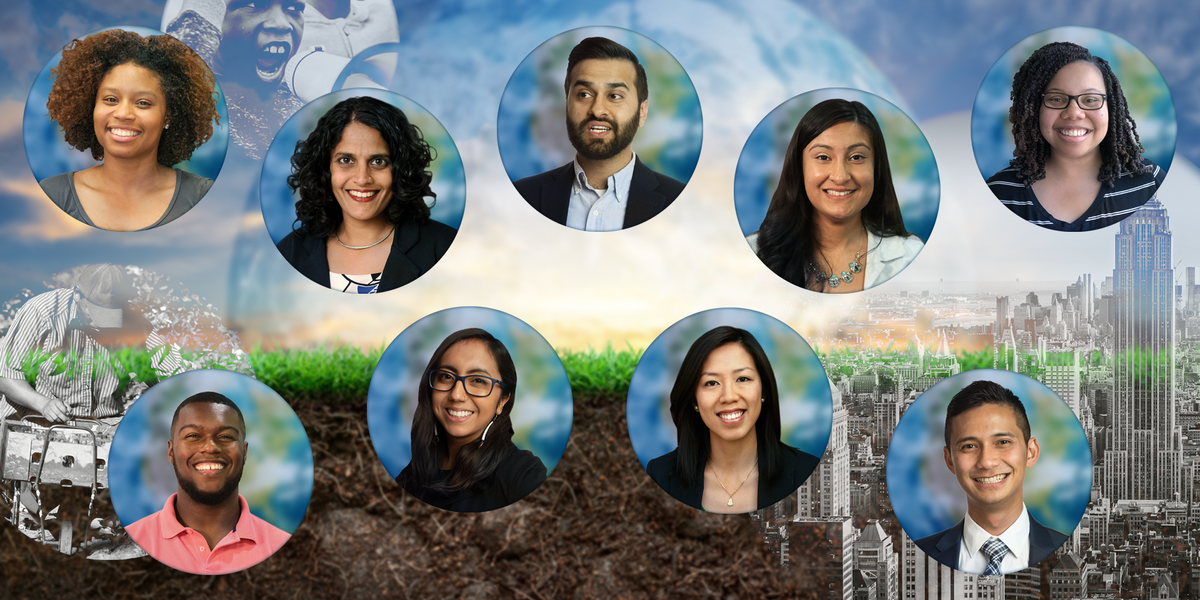
Want to hear more from our “Agents of Change?” Here’s your chance.
On July 30, the Collaborative on Health and the Environment (CHE) will host a Q&A discussion featuring four environmental health leaders who participated in Agents of Change, an ongoing series featuring the stories, analyses and perspectives of next generation environmental health leaders who come from historically under-represented backgrounds in science and academia.
The series was a partnership between the George Washington University Milken Institute School of Public Health and Environmental Health News.
The webinar will feature fellows Brianna VanNoy, Ashley Gripper, Deniss Martinez, and Max Aung, who have published articles focused on prioritizing inclusion in environmental health, food sovereignty, the ecology of Indigenous cultural fire practices, and balancing energy needs with community health.
Ami Zota, an associate professor in the Department of Environmental & Occupational Health at the George Washington University Milken School of Public Health, leads the project and will also be on the call.
“This series —and these voices—could not come at a more important time,” said EHN editor Brian Bienkowski, who worked with Zota and the fellows. “As our country comes to grips with longstanding health inequities and racial inequality, these fellows bring a research and community perspective that must be listened to. This is the future of environmental health research.”
Karen Wang, PhD, director of CHE will moderate the webinar, which will take place July 30 at 1 PM ET. This is the first of two webinars on Agents of Change.
For more information visit CHE’s website and check out the entire Agents of Change series.





